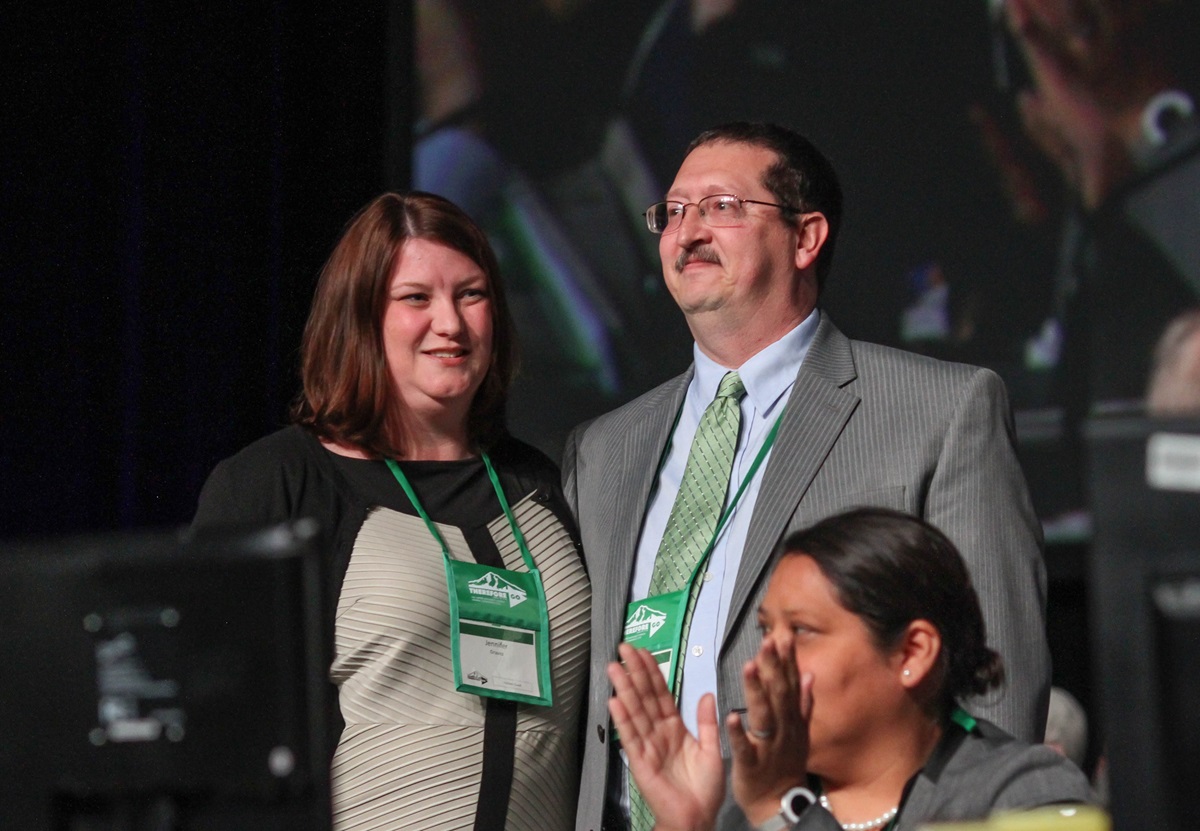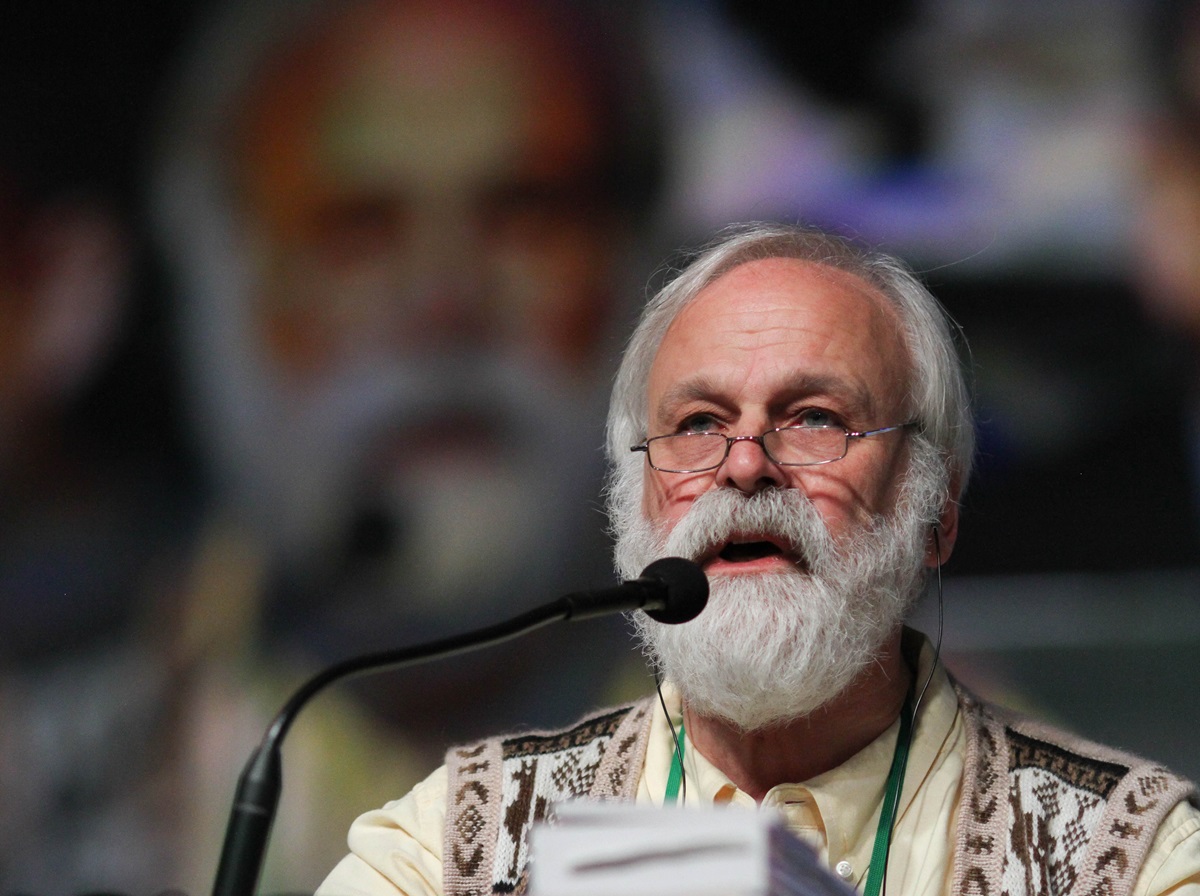Annual conference voters around the globe will be revoting on one of two constitutional amendments dealing with women’s equality. The revote was announced after the Ask The UMC team and United Methodist News Service learned of an error and reported it on May 10 to the Rev. Gary Graves, secretary of General Conference.
At the 2016 General Conference, when the Independent Commissions Committee considered Amendment 1, it deleted the sentence, “The United Methodist Church recognizes it is contrary to Scripture and to logic to say that God is male or female, as maleness and femaleness are characteristics of human bodies and cultures, not characteristics of the divine.” The amended copy also changed the last sentence to “The United Methodist Church shall work collaboratively with others to address concerns that threaten women’s and girls’ equality and well-being.”
“As the petition was processed and then the constitutional amendments were prepared to go out to annual conferences, it appears that ‘delete the second sentence in its entirety’ was missed,” Graves said. “So the words that went to annual conferences contained text that should have been stricken before it went out.”
The amendments were originally sent to bishops and annual conference secretaries in late 2016 by the former secretary of the General Conference, the Rev. Gere Reist. Both Reist and Graves apologized for the error.
Graves told the Commission on General Conference that since the material was wrong, he consulted with the Council of Bishops about how to address the error. The correct wording of the amendment will be sent to the conferences next week. Since some annual and central conferences have already held their sessions this year, their voting will take place next year.
When United Methodist News Service reached out to conference delegates who voted no on this amendment, many cited that sentence as the reason for their votes.
The Liberia Conference voted against both amendments dealing with women’s equality with 956 no votes on Amendment 1 and no votes supporting the amendment. On Amendment 2, which would have added gender, ability, age and marital status to the list of characteristics that do not bar people from membership in the church, 955 Liberian delegates voted no and one delegate voted yes.
The Rev. Jerry Kulah, who was a 2016 General Conference delegate, wrote an analysis after the vote in May that was published in Juicy Ecumenism. “We are in total agreement, and consistent with Scripture (Genesis. 1:26-27; 9:6; I Corinthians 11:7), that humanity is made in the image of God. Therefore both male and female are of equal value before God. We also stand strongly opposed to discrimination against women and girls, for we are all God’s children. However, we strongly opposed the reference that ‘it is contrary to Scripture and to logic’ to acknowledge or claim the maleness or fatherhood of God.” Kulah did not respond to e-mails requesting further comment.
In debate at the North Texas Conference, John Dorff of Highland Park United Methodist Church spoke against the amendment, specifically the phrase that says, “The United Methodist Church recognizes it is contrary to Scripture and to logic to say that God is male or female…” In the minutes reported in the conference journal, Dorff concluded that God is represented in Scripture as male.
Dorff greeted the revote as "great news."
"During the debate last year I said I would have supported the amendment if it didn't have that specific line in it. I will be happy to support it as soon as I have the opportunity at annual conference," he said.
North Texas did vote 436-192 for the amendment.
To be ratified, each constitutional amendment first requires at least a two-thirds majority vote at General Conference, which happened in 2016. Then, each must win at least 66.7 percent of the total votes at annual conferences around the world. That voting took place in 2017 and early 2018.
The Council of Bishops announced the results of the voting on May 7. The first amendment, the one with the error, failed by fewer than 100 votes with a 66.5 percent tally — 31,304 yes and 15,753 no. The second amendment received 61.3 percent, shy of 2,529 votes to ratify with 29,049 yes votes and 18,317 no.
The bishops expressed “dismay” at the outcome of the two women’s equality amendments.
The female bishops issued a separate pastoral letter expressing “lament” over the results.
Several bishops, pastors and laity have been expressing pain over the votes on Facebook posts.
United Methodist Young Clergywomen, a subgroup of Young Clergywomen International, is circulating a letter about the votes on both amendments.
The Rev. Janessa Chastain, one of the authors of the letter, responded to the news of the revote by urging all delegates to vote at their annual conferences.
“The news of this revote means that we United Methodists have a rare opportunity to right an injustice. While this doesn’t erase the painful message sent by the first vote, The United Methodist Church has the opportunity to send a new message.
“We urge those who voted against Amendment I to listen to women and learn why it matters to them that God made them in the Divine image. We also urge all disappointed by the original vote to remember that Amendment I failed by a margin of fewer than one hundred votes. In light of this, we urge all clergy and delegates to vote at their respective annual conferences. Your vote matters. Show up. Vote. Affirm that God has created women and men equal in God’s image,” she told United Methodist News Service.
UMNS reported the error and asked for a comment May 10. Graves asked the news not be released until May 11, and UMNS honored that agreement.
UMNS and Ask the UMC compared the text of all five amendments to the text submitted to the conference secretaries. The other four amendments are correct.
Gilbert is a multimedia reporter for United Methodist News Service. Heather Hahn contributed to this story. Contact them at 615-742-5470 or newsdesk@umcom.org. To read more United Methodist news, subscribe to the free Daily or Weekly Digests.
Like what you're reading? Support the ministry of UM News! Your support ensures the latest denominational news, dynamic stories and informative articles will continue to connect our global community. Make a tax-deductible donation at ResourceUMC.org/GiveUMCom.





